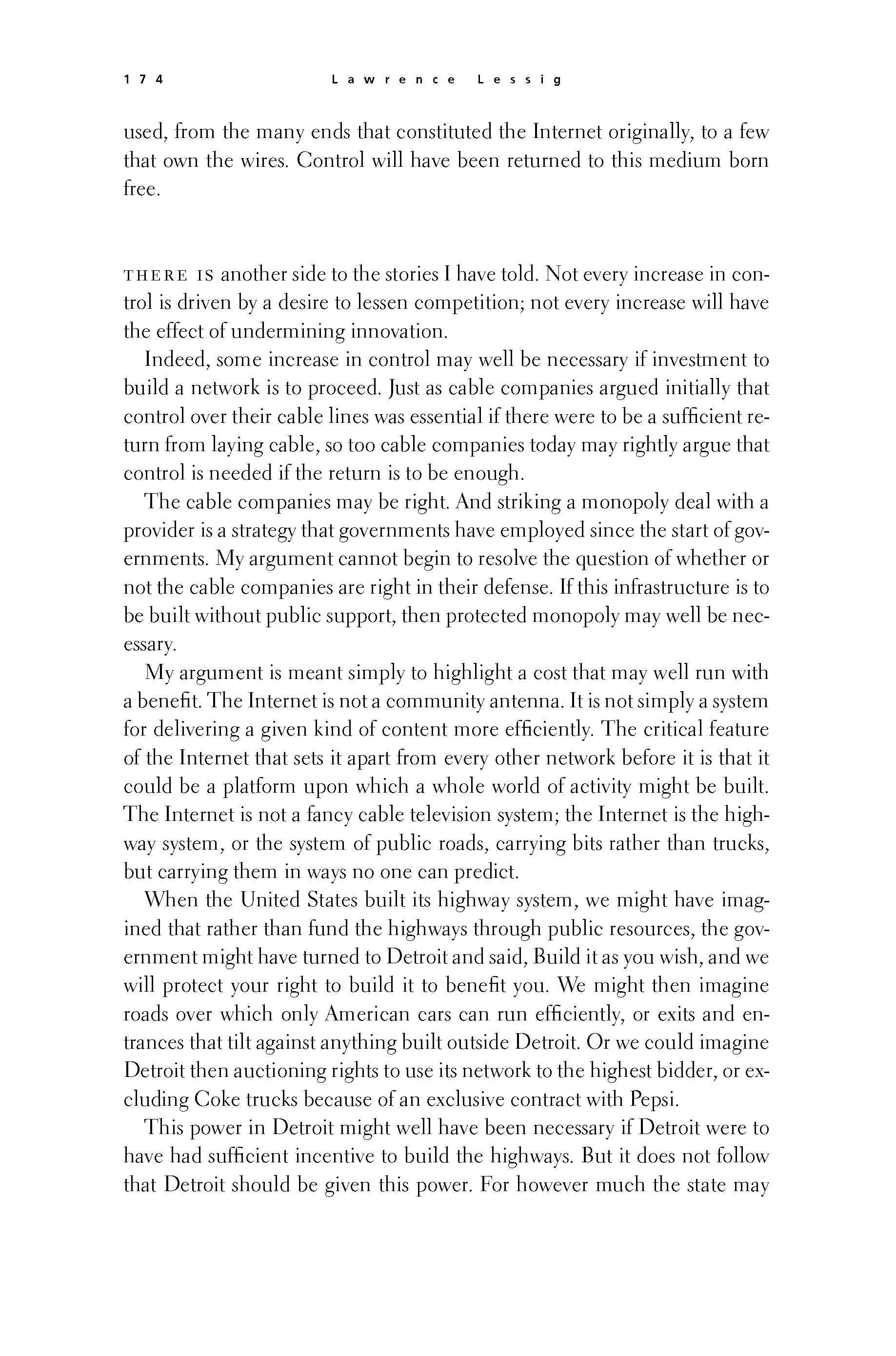 p173 _
-chap- _
toc-1 _
p174w _
toc-2 _
+chap+ _
p175
p173 _
-chap- _
toc-1 _
p174w _
toc-2 _
+chap+ _
p175
used, from the many ends that constituted the Internet originally, to a few
that own the wires. Control will have been returned to this medium born
free.
///\\\
There is another side to the stories I have told. Not every increase in con-
trol is driven by a desire to lessen competition; not every increase will have
the effect of undermining innovation.
Indeed, some increase in control may well be necessary if investment to
build a network is to proceed. Just as cable companies argued initially that
control over their cable lines was essential if there were to be a sufficient re-
turn from laying cable, so too cable companies today may rightly argue that
control is needed if the return is to be enough.
The cable companies may be right. And striking a monopoly deal with a
provider is a strategy that governments have employed since the start of gov-
ernments. My argument cannot begin to resolve the question of whether or
not the cable companies are right in their defense. If this infrastructure is to
be built without public support, then protected monopoly may well be nec-
essary.
My argument is meant simply to highlight a cost that may well run with
a benefit. The Internet is not a community antenna. It is not simply a system
for delivering a given kind of content more efficiently. The critical feature
of the Internet that sets it apart from every other network before it is that it
could be a platform upon which a whole world of activity might be built.
The Internet is not a fancy cable television system; the Internet is the high-
way system, or the system of public roads, carrying bits rather than trucks,
but carrying them in ways no one can predict.
When the United States built its highway system, we might have imag-
ined that rather than fund the highways through public resources, the gov-
ernment might have turned to Detroit and said, Build it as you wish, and we
will protect your right to build it to benefit you. We might then imagine
roads over which only American cars can run efficiently, or exits and en-
trances that tilt against anything built outside Detroit. Or we could imagine
Detroit then auctioning rights to use its network to the highest bidder, or ex-
cluding Coke trucks because of an exclusive contract with Pepsi.
This power in Detroit might well have been necessary if Detroit were to
have had sufficient incentive to build the highways. But it does not follow
that Detroit should be given this power. For however much the state may
[[174]]
p173 _
-chap- _
toc-1 _
p174w _
toc-2 _
+chap+ _
p175